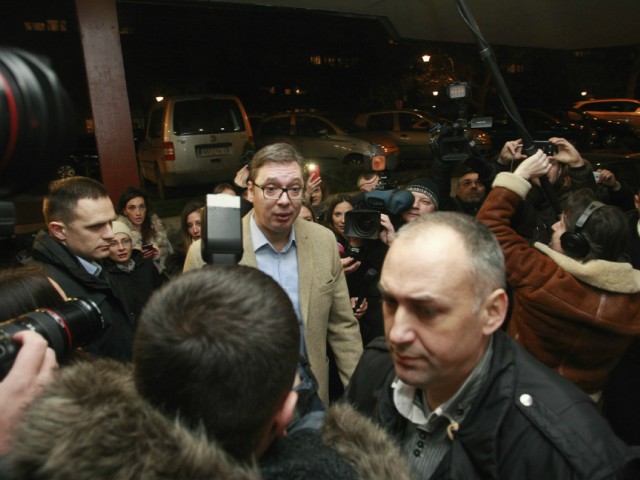
BELGRADE, 16.12.2018. – A letter to Mogens Blicher Bjerregard, president of European Federation of Journalists, on the eve of his visit to Serbia.
Dear Mr Bjerregard,
I am a journalist from Serbia and work for an NGO, the Balkan Investigative Reporting Network, at its office in Serbia.
I have seen that numerous people have written to you from Serbia and have decided to do the same, to help you to better understand the media situation in this country.
I was especially motivated to write to you after Suzana Vasiljevic did so from the position of Serbian President Aleksandar Vucic’s special media envoy.
Her letter and announcement refers to an initiated debate, once again, about the situation in the media in Serbia, about the position of independent media in Serbia as well as about the way President Vucic has been presented in the media.
Contrary to the information that you’ve probably got from Serbia’s Independent Association of Journalists, she would like to present you with a different perspective about the media situation, from the point of view of President Vucic.
Moreover, she has asked you to find time to meet him, probably to learn directly from him, because he is the most “attacked man” in the Serbian media. I believe that this is the idea behind Vasiljevic’s message addressed to you.
It is not my intention to alter any feelings you are going to have after meeting Vucic; no, I just want to stress some other things that I believe you probably know better than me.
First, it is an honour to be presented personally to the president and I do hope you appreciate it.
Vucic strongly believes that the media is one of the key elements in the political life of any country – and he likes the media. As a young apprentice to Vojislav Seselj, the leader of the Serbian Radical Party, in the early Nineties, he was a media correspondent from Pale, a village near Sarajevo that acted as a centre of Serbian military forces in Bosnia during the 1992-5 war.
His mother was a journalist, his first wife is a journalist, and his second wife has a journalistic background.
Maybe you know some similar cases in the EU, although I couldn’t find one, of a president with such strong, substantial connections to the media.
BIRN has reported about the way he took remote control of all the mainstream media in Serbia since he came to power in 2012, by controlling the mechanisms of the money flow towards the media.
His close associates move into the media, buying the market with their agencies, and installing themselves as bosses of all the advertising budgets in the country. We are talking about an amount of 150 to 170 million euros per year.
Once you control the money flow, it is easy to control media content – which is why the bulk of the “independent” media call him the main editor of all tabloids and mainstream TV stations in the country.
Credible analysis reveals the absolute dominance of Vucic and his Progressive Party in the media compared to all the other actors in Serbian political life.
He is going to say, of course, that only two tabloids and one TV station are on his side – but this is far from the truth.
Those who criticize his governance are marginalised on the market and those who glorify his policies are rewarded; that’s the whole picture of the media in Serbia in terms of the “free market”.
On the other side are several online outlets, one daily and two weekly papers.
The online outlets are totally dependent on international donations, which is why they have been marked out as foreign agents and “false media”.
The daily and two weeklies circulate only in Belgrade because they do not have the resources to print and distribute for a bigger circulation. Danas, Vreme and NIN together sell around 20,000 copies, which is nothing in a country of 7.5 million citizens.
Vucic will say, however, that the fact that they are on the market is evidence that there is no kind of censorship in Serbia but that, on the contrary, Serbia has a press freedom that goes far beyond normal democratic standards.
He will argue also that people now use social networks to communicate and share content, and most of these people are not his voters, and there is no way of controlling communication and content sharing on social networks.
For me, however, the fact that the president wants to meet you to explain the media situation in the country, and his position as a victim of vicious journalism, is proof of everything we are saying about the nature of his governance: one man wants to have control over every single aspect of the life in Serbia, which I do not recognise as democratic way of governing.
If I’m lying and delusional, then why on earth does the president of the country facing a mass of other important issues, want to debate with the president of a journalistic organisation, when there are other institutions competent to work in this area?
Why is it not enough for the culture and information ministry or some other government agency to explain the media situation in the county? What is wrong with them doing this – especially when those people were chosen for this role by Vucic and his party?
Once again, thank you for your time and sorry if I had been intrusive. I do hope that you have good time in Belgrade next week and find time to enjoy Serbian hospitality in the proper manner.
All the best,
Slobodan